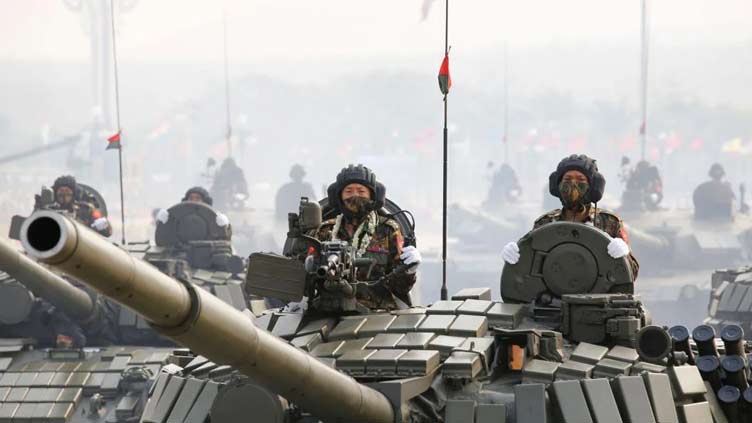Myanmar junta likely using air strikes as 'collective punishment': Amnesty

World
Myanmar junta likely using air strikes as 'collective punishment'
BANGKOK (AFP) - Myanmar s military has likely used air strikes and artillery barrages as "collective punishment" against civilians opposing its coup, Amnesty International said Wednesday, accusing the junta of war crimes.
Deadly clashes have ravaged swathes of the country since last year s coup, which ousted civilian leader Aung San Suu Kyi s government, with the junta unable to crush resistance to its rule.
Between last December and March, the military ramped up its onslaught in Kayah and Kayin states along the Thai border, with troops carrying out extrajudicial killings and looting and burning villages, Amnesty said.
Air strikes and shelling hit homes, health facilities, temples and churches, the rights group said, with villagers telling researchers some artillery barrages lasted for days.
Amnesty said the onslaught constituted "a new wave of war crimes and likely crimes against humanity".
Air strikes killed nine civilians and wounded at least nine others during the reporting period, the report said.
"In almost all documented (air) attacks, only civilians appear to have been present," it said.
One air strike last January hit a camp for internally displaced people in Kayah state, killing a man and two sisters sheltering in an area that activists said "should have been well known to the military".
Researchers also documented instances when soldiers had shot civilians fleeing clashes, including one eyewitness who said troops had shot dead six people trying to cross a river into Thailand.
- Collective punishment -
Amnesty said the military s operations "reflected its signature policy of collective punishment of civilian communities perceived to support an armed group or, in the coup s aftermath, the wider protest movement".
Kayah and Kayin states have seen some of the fiercest fighting since the putsch, with anti-coup fighters often teaming up with more established ethnic rebel groups.
In January, the military called in air strikes on the Kayah state capital Loikaw to dislodge anti-coup fighters, a junta spokesman told AFP.
On Christmas Eve last year, more than 30 burnt bodies, including those of women and children, were discovered on a highway in the state after a massacre blamed on junta troops.
The charity Save the Children later said two of its staff were among those killed.
Myanmar s military has been repeatedly accused of atrocities and war crimes during decades of internal conflict.
Military violence against the Rohingya minority in 2017 sent an estimated 750,000 people fleeing into neighbouring Bangladesh, bringing accounts of rape, murder and arson.
Junta chief Min Aung Hlaing -- who headed the army during the Rohingya crackdown -- said in March that the military would "annihilate until the end" groups fighting to overturn its rule.
More than 1,800 people have been killed in the junta s crackdown on dissent, according to a local monitoring group.

